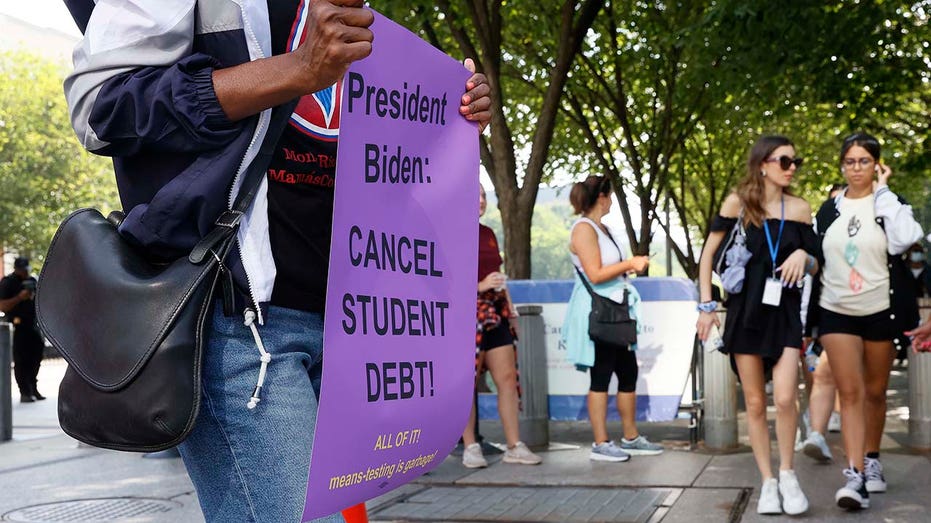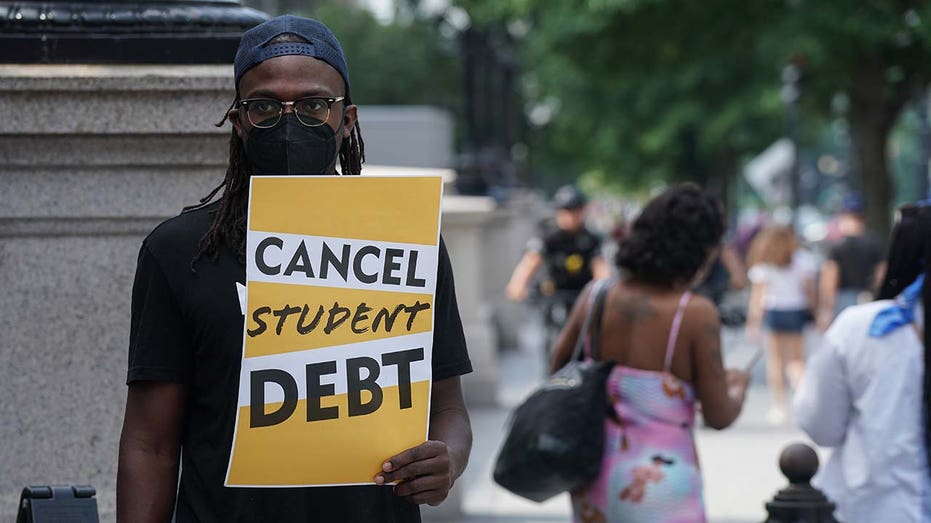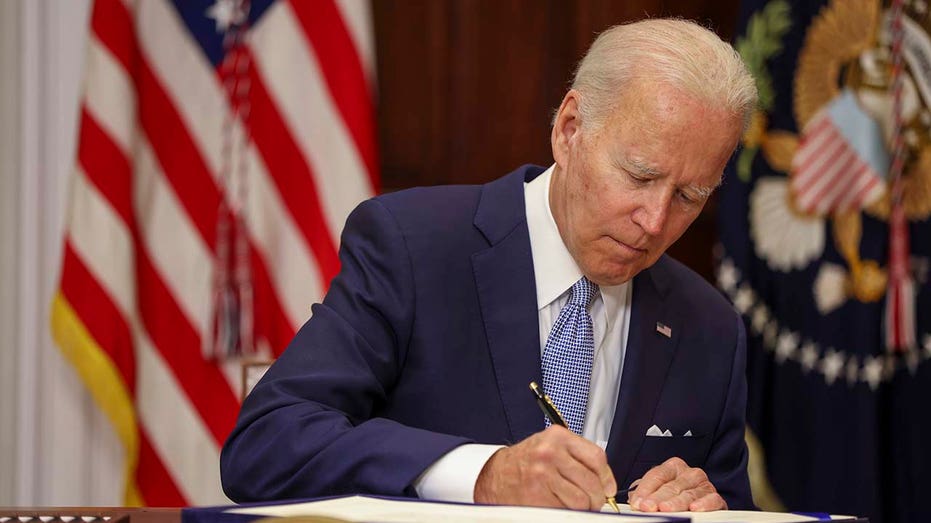Biden's decisions on student loan pause, forgiveness expected this month
The president said he would decide on forgiving student loan debt by the end of August
Biden's Inflation Reduction Act will actually increase inflation: Economist
George Washington adjunct professor of economics Diana Furchtgott-Roth and University of Maryland economist Peter Morici discuss if the new spending bill will make a bad inflationary situation worse on 'Cavuto: Coast to Coast.'
President Biden is taking his time to reveal whether he will issue a seventh extension of the pandemic-era pause on student loan payments that expires at the end of this month, raising speculation that a bigger announcement involving student debt forgiveness will come with it.
The administration has already signaled that the loan payments set to resume on Sept. 1 will not be due. The Wall Street Journal reported last week that the Department of Education had instructed loan servicers not to send out billing statements.

Demonstrators outside the White House demand that President Biden cancel student loan debt on July 27, 2022.
With no time to send out statements providing the required 30 days' notice, it is a safe bet that borrowers will not have to resume payments just yet. Some may never have student loan payments again.
According to multiple reports, the president is considering eliminating some student debt for current borrowers; it is simply a matter of what dollar amount. There is also consideration of what income cap might be set, if any.
FEDERAL STUDENT LOAN PROGRAM COST UNDERESTIMATED BY $311B, GOVERNMENT WATCHDOG SAYS
Sources familiar told the Wall Street Journal that the White House is mulling several options, including one confirmed by former press secretary Jen Psaki earlier this year, which involves forgiving $10,000 in student debt – a promise Biden made while campaigning for president – for anyone making less than $125,000 year.
The question is: What will the political ramifications be?

Sources say the White House is mulling several options related to student loan debt. (Jemal Countess/Getty Images for We, The 45 Million / Getty Images)
With Biden's poll numbers showing he is currently unpopular even with his base leading into the November midterm elections, where control of Congress is at stake, the president's move on the issue is critical.
Progressives and civil rights groups are pushing for Biden to grant $50,000 in student loan forgiveness, and no less. Activists seeking to wipe away debts argue that borrowers were bamboozled by universities and the federal government alike, leaving them with inadequate wages to cover the payments and keeping them from achieving life goals like homeownership.
The NAACP delivered a letter to the president on Friday, telling him that $50,000 must be the minimum level of forgiveness with no income bracket caps because Black borrowers "have virtually no realistic way to pay it back in today’s unjust economy."
Republicans have pushed back hard on the proposal to cancel student debt, pointing to the cost, proposed income caps, the fact that borrowers chose to take on the payments, and the ethics of requiring all taxpayers to foot the bill – including those who never took on student loans and those who already paid theirs off.
"Student loan forgiveness is regressive – it writes off the debts of rich kids who are going to be just fine," Sen. Ben Sasse, R-Neb., told FOX Business. "It’s a gut punch to every kid who paid their way through college or who worked hard to pay their loans."
US NATIONAL DEBT TO BE DOUBLE GDP BY 2051, RAISING RISK OF FISCAL CRISIS: CBO
That's an argument vulnerable Democrats will have to answer, too, as the November elections approach.

President Biden's reported plan to cancel student loan debt via executive action could face court challenges. (Tasos Katopodis/Getty Images / Getty Images)
An additional risk is that student loan forgiveness handed down by the executive branch is also likely to face legal challenges, given that Congress has the sole authority to authorize spending of taxpayer dollars.
After losing several court battles already, having student loan forgiveness nixed by a court could be perceived as another broken promise to the far left and seen as a scolding to the administration for overreach.
GET FOX BUSINESS ON THE GO BY CLICKING HERE
Whether it holds up in court or not, the price tag is likely to fall under scrutiny for Biden, who has continued to push multitrillion-dollar spending packages while Americans grapple with crippling inflation that sits at a 40-year high.





















